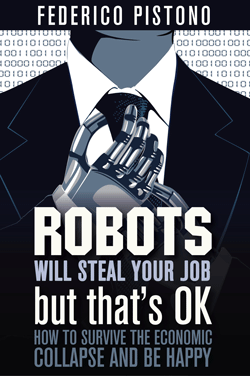Jun 5, 2013
The Impending Crisis of Data: Do We Need a Constitution of Information?
Posted by Emanuel Yi Pastreich in categories: cybercrime/malcode, information science, media & arts
The recent scandal involving the surveillance of the Associated Press and Fox News by the United States Justice Department has focused attention on the erosion of privacy and freedom of speech in recent years. But before we simply attribute these events to the ethical failings of Attorney General Eric Holder and his staff, we also should consider the technological revolution powering this incident, and thousands like it. It would appear that bureaucrats simply are seduced by the ease with which information can be gathered and manipulated. At the rate that technologies for the collection and fabrication of information are evolving, what is now available to law enforcement and intelligence agencies in the United States, and around the world, will soon be available to individuals and small groups.
We must come to terms with the current information revolution and take the first steps to form global institutions that will assure that our society, and our governments, can continue to function through this chaotic and disconcerting period. The exponential increase in the power of computers will mean that changes the go far beyond the limits of slow-moving human government. We will need to build new institutions to the crisis that are substantial and long-term. It will not be a matter that can be solved by adding a new division to Homeland Security or Google.
We do not have any choice. To make light of the crisis means allowing shadowy organizations to usurp for themselves immense power through the collection and distortion of information. Failure to keep up with technological change in an institutional sense will mean that in the future government will be at best a symbolic façade of authority with little authority or capacity to respond to the threats of information manipulation. In the worst case scenario, corporations and government agencies could degenerate into warring factions, a new form of feudalism in which invisible forces use their control of information to wage murky wars for global domination.
No degree of moral propriety among public servants, or corporate leaders, can stop the explosion of spying and the propagation of false information that we will witness over the next decade. The most significant factor behind this development will be Moore’s Law which stipulates that the number of microprocessors that can be placed economically on a chip will double every 18 months (and the cost of storage has halved every 14 months) — and not the moral decline of citizens. This exponential increase in our capability to gather, store, share, alter and fabricate information of every form will offer tremendous opportunities for the development of new technologies. But the rate of change of computational power is so much faster than the rate at which human institutions can adapt — let alone the rate at which the human species evolves — that we will face devastating existential challenges to human civilization.
Continue reading “The Impending Crisis of Data: Do We Need a Constitution of Information?” »













